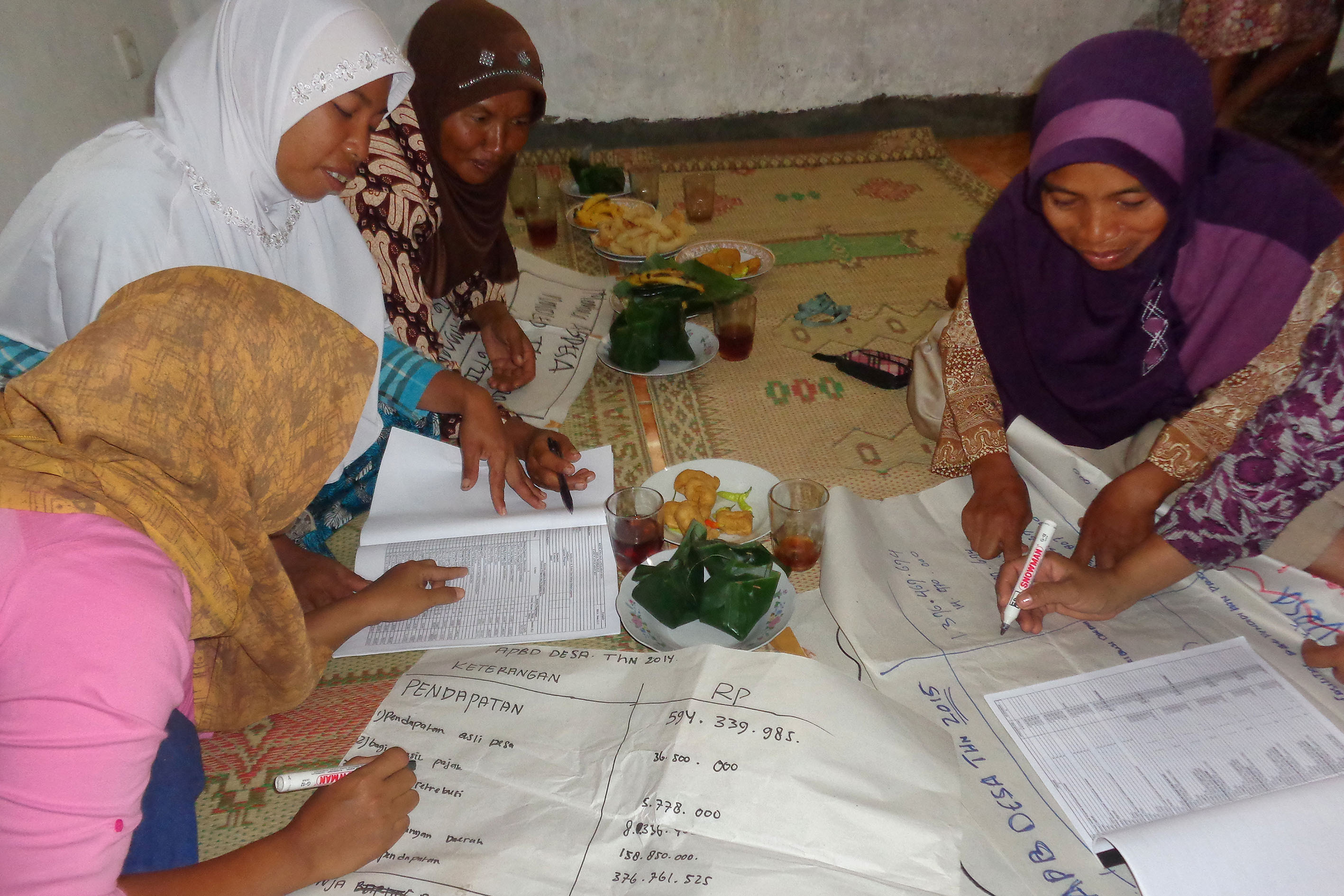
From the outset, the Web Foundation’s Open Data Lab Jakarta has engaged partners in Indonesia and all over Southeast Asia to unlock the social, political, and economic benefits of open data in the region.
Open data and the quest for gender equity and inclusivity
One thing we’ve learned from our experiences is that open data initiatives impact men and women differently. For example in our technical trainings in Banda Aceh, around 65-80% of the participants were men, illustrating the barriers which disproportionately prevent women from leveraging civic technology for their benefit. In Yogyakarta, despite the availability of budget data in an open format, budget transparency advocates have noted that budget and spending reports are gender-blind. This is why with our continued work, we’re highlighting more the importance of designing together with women and marginalised groups—not just designing for them.
Reflecting on this, we decided to launch an action research project on open data and gender-inclusive development in Yogyakarta, in partnership with Perkumpulan IDEA and supported by the Ford Foundation. We’ll be working with communities and local government in two villages: Girisuko in the Gunung Kidul district and Wonolelo in the Bantul district.
What do we hope to learn and achieve?
To date, little research has been done on gender budgeting and monitoring using open data. We want to change that and begin understanding two main questions: Can open data be used as a tool to achieve gender-responsive development? How can we ensure that women are empowered by and benefit from open government data?
Through this project, we want to see whether and how government-budgeted and funded projects impact men and women differently. We want to assess how budgets set aside for women’s issues and gender equality have been spent, and whether these funds have truly been dedicated to tackling the most pressing challenges facing women specifically.
Where strong gender budgeting and monitoring is already in place, we also want to explore how open data initiatives can further strengthen the process of monitoring the allocation, spending, and impact of public funds to benefit and advance the opportunities of women and girls.
What will the pilot project include?
- Training sessions and workshops to collect, scrape, analyse and visualise data
- The establishment of a citizen forum to monitor practice and use of open data for gender equity
- Awareness raising and data literacy activities with citizens to allow them to understand budget data and monitor implementation and spending
- The encouragement of proactive disclosure of local government data on gender-related programmes
At the Jakarta Lab, whenever we embark on a project to address a pressing social issue, it’s important to us that we also assess the relevance of open data to the solutions being designed. Our ambition is that everyone benefits from the use of open data – regardless of gender, age, race, and status. We’re excited to be taking bolder steps towards addressing this from a gender perspective, and hope we can harness the power of open data to level the playing field—bit by bit.
This project was designed by Perkumpulan IDEA’s Deputy for Program Development, Tenti Kurniawati—a woman whose passion for gender budget monitoring inspired her to work committedly for social development. IDEA will be working with two local women’s organisations from Yogyakarta to build collective capacity for gender budget monitoring and advocacy.
Visit our website to learn more about our other projects, approaches and implementation models, and read updates from our blog. You can also follow us on Twitter @ODLabJkt to learn more about how this project progresses.
Leave a Reply